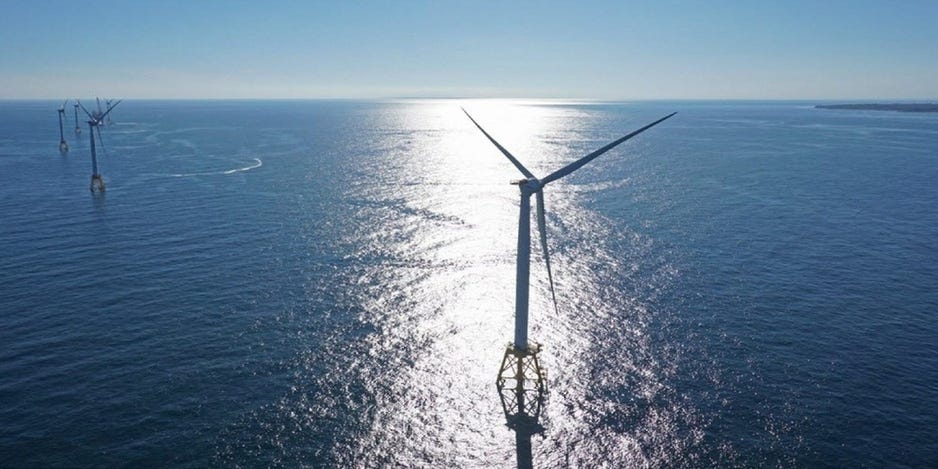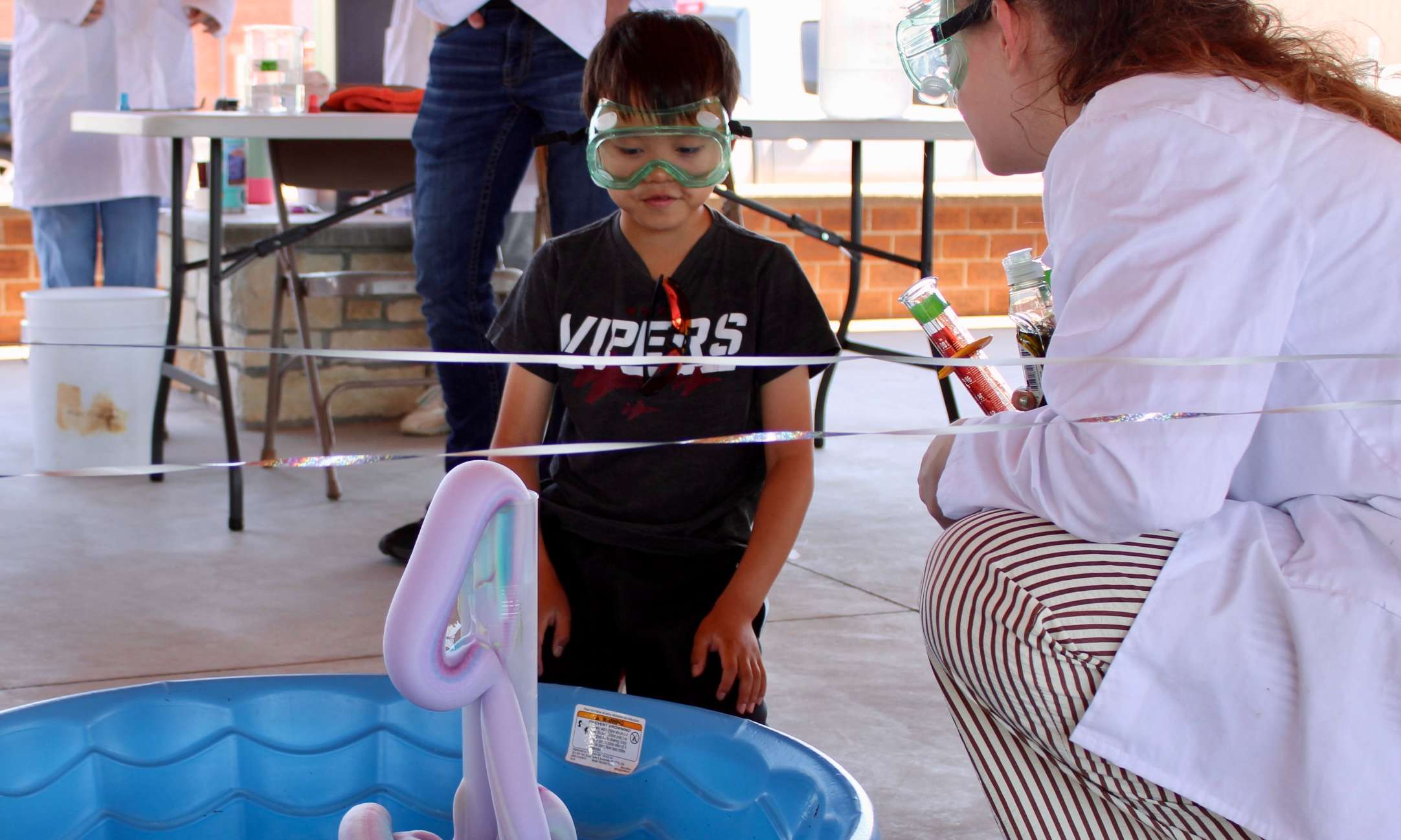Science Under Siege: Trump's War on Academic Freedom and Free Speech
Science
2025-04-14 08:13:27
Silencing Science: Voices Under Pressure In an eye-opening exploration of academic freedom, Morning Edition's latest First Amendment series delves into the complex landscape where scientific discourse meets political and professional constraints. The investigation reveals the profound challenges researchers face when speaking out—or choosing to remain silent—in an increasingly polarized environment. Scientists today navigate a treacherous terrain where expressing controversial findings can mean risking professional reputation, funding, or even career trajectory. The series uncovers the subtle yet powerful mechanisms of suppression that can emerge from colleagues, institutional hierarchies, and governmental pressures. From climate research to public health studies, researchers are increasingly confronting difficult choices: compromise their scientific integrity or face potential professional marginalization. This nuanced examination highlights the delicate balance between academic honesty and personal preservation in today's high-stakes scientific community. By bringing these hidden struggles to light, the series offers a critical look at the true cost of scientific communication in an era where truth can be as politically charged as it is empirically grounded. MORE...
Mars Mission Stalled: Why Humanity's Red Planet Dreams Remain Stuck in Neutral
Science
2025-04-14 01:36:49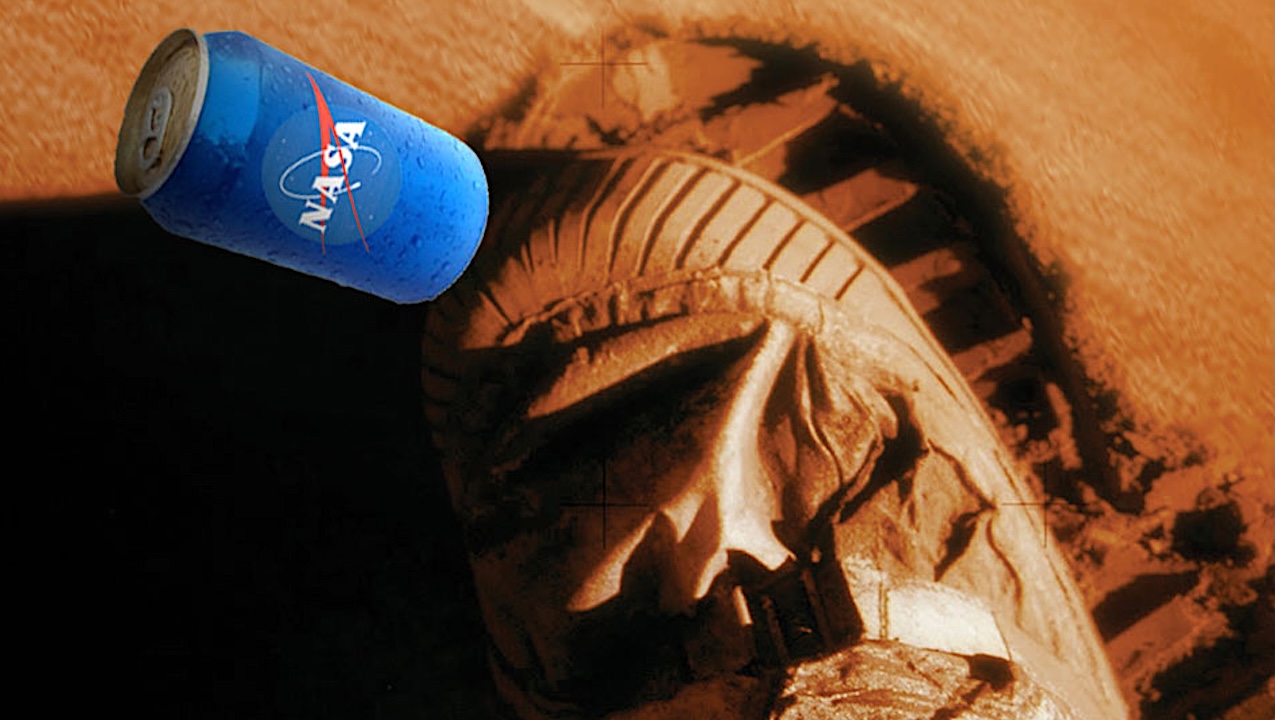
As NASA faces potential budget cuts, the Mars Sample Return mission finds itself under scrutiny. This ambitious project has long wrestled with challenges of cost, complexity, and scheduling. But what if we could reimagine the entire approach to Martian sample collection? Traditionally, the Mars Sample Return mission has been centered on the complex goal of gathering samples and bringing them back to Earth. However, emerging technologies and innovative thinking are challenging this conventional wisdom. Could there be alternative methods to study Martian samples that don't require the immense logistical and financial burden of physical transportation? The mission represents a critical intersection of scientific curiosity and technological innovation. While budget constraints threaten its future, the underlying quest to understand Mars remains as compelling as ever. Researchers and space enthusiasts alike are watching closely, wondering how this potential setback might spark even more creative solutions for exploring the Red Planet. MORE...
Vision Unveiled: How Jim Clayton Plans to Revolutionize Science Museums
Science
2025-04-13 22:52:00
In a surprising turn of events, Jim Clayton, the renowned founder of Clayton Homes, has publicly addressed the city of Knoxville's recent statement regarding his withdrawn donation for a new science museum. The controversy has sparked significant local interest and discussion about philanthropic commitments and community development. Clayton, a prominent business leader and philanthropist, made waves when he decided to retract his financial support for the proposed museum project. His decision came after what appears to be a disagreement or misunderstanding with city officials, highlighting the complex dynamics between private donors and municipal institutions. While the specific details of the dispute remain unclear, Clayton's withdrawal signals a potential setback for the city's ambitious plans to establish a cutting-edge science museum. The project, which was expected to be a significant cultural and educational addition to Knoxville, now faces uncertainty. Local community members and civic leaders are closely watching the unfolding situation, hoping that a resolution can be reached that preserves the museum's potential and maintains positive relationships between private donors and public institutions. MORE...
Trapped in the Scroll Hole: Why Your Brain Can't Stop Consuming Doom and Gloom
Science
2025-04-13 21:00:00
In the intricate dance of human survival, our brains have been finely tuned by evolution to be hypervigilant about potential threats. This deeply ingrained survival mechanism, which once protected our ancestors from immediate dangers, now seems to be working overtime in our modern world of constant information. Imagine our prehistoric predecessors scanning the horizon for predators or signs of impending danger. Their ability to quickly detect and respond to negative signals meant the difference between life and death. Fast forward to today, and this same neurological wiring continues to shape how we process information, particularly through media and digital platforms. Our brains are essentially hardwired to give more weight to negative news. Psychologists call this the "negativity bias" - a cognitive tendency that makes us more sensitive to and likely to remember unpleasant information. In the age of 24/7 news cycles and social media, this evolutionary trait can have profound implications for our mental and physical well-being. Constant exposure to distressing news triggers our stress response, releasing cortisol and adrenaline. While these hormones were once crucial for immediate survival, prolonged activation can lead to chronic stress, potentially impacting our immune system, cardiovascular health, and overall mental state. Understanding this biological predisposition is the first step in managing our information consumption. By becoming aware of how our brains process negative information, we can develop healthier strategies for staying informed without becoming overwhelmed. The challenge lies in balancing our innate survival instincts with the need for emotional and psychological well-being in an increasingly complex, information-saturated world. MORE...
Deep-Sea Resurrection: Ancient Microbe Awakens After Millennia in Oceanic Darkness
Science
2025-04-13 20:30:24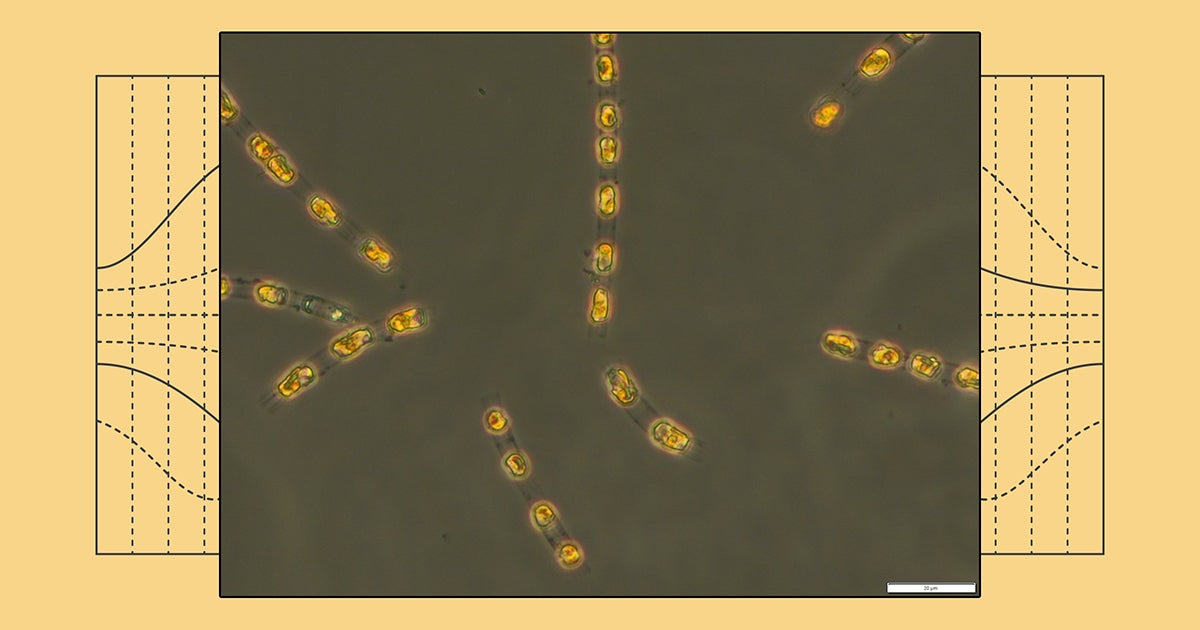
Ancient Algae Awakens: A 7,000-Year Journey from Dormancy to Life
In a remarkable scientific breakthrough, researchers in Germany have accomplished the seemingly impossible: reviving microscopic algae cells that have been entombed at the bottom of the Baltic Sea for over 7,000 years. These resilient organisms, trapped beneath layers of sediment and deprived of oxygen and light for millennia, have defied all expectations by springing back to life with astonishing vigor.
Published in The ISME Journal, the study reveals that once these ancient cells were carefully extracted and reanimated, they demonstrated full biological functionality. Like time travelers awakening from a deep slumber, the algae immediately resumed their critical role in oxygen production and began multiplying with remarkable ease.
This extraordinary discovery represents the oldest known organism to be successfully revived, offering unprecedented insights into the incredible survival capabilities of microscopic life forms. The research not only challenges our understanding of biological resilience but also opens up fascinating possibilities for studying how organisms can endure extreme environmental conditions.
MORE...Celestial Spectacle: Meteor Storms Set to Dazzle Stargazers This Week
Science
2025-04-13 19:00:34
A Double-Feature You Don't Want to Miss
Get ready for an unforgettable cinematic experience that promises to captivate and thrill audiences of all tastes. This extraordinary double-feature is set to deliver an evening of pure entertainment that will keep you on the edge of your seat.
The first film is a heart-pounding action thriller that weaves an intricate plot of suspense and unexpected twists. With stellar performances from a talented cast and breathtaking cinematography, this movie guarantees to keep you guessing until the very last moment.
Following the intense opener, the second feature takes you on a completely different journey. A thought-provoking drama that explores deep human emotions and complex relationships, this film offers a perfect contrast to the adrenaline-fueled first movie.
Whether you're a film enthusiast or simply looking for a memorable night out, this double-feature promises something extraordinary for everyone. Don't miss this rare opportunity to immerse yourself in two incredible stories back-to-back.
Mark your calendars and gather your friends – this is one cinematic experience you'll be talking about long after the credits roll!
MORE...Breakthrough: Scientists Craft Living Human Teeth from Scratch in Groundbreaking Lab Experiment
Science
2025-04-13 18:06:37
In a groundbreaking development, scientists at King's College London have unveiled a potential game-changer in dental restoration. Their cutting-edge research suggests a revolutionary approach that could one day enable patients to naturally regrow lost teeth, promising a transformative solution to tooth loss that goes far beyond current dental replacement techniques. The innovative research opens up exciting possibilities for individuals who have experienced tooth loss due to injury, decay, or genetic conditions. By harnessing advanced regenerative techniques, researchers are inching closer to a future where missing teeth could be regrown directly in the jaw, offering a more natural and seamless alternative to traditional implants or prosthetics. This breakthrough represents a significant leap forward in dental medicine, potentially providing hope for millions of people worldwide who struggle with tooth loss and its associated challenges. While still in the early stages, the research hints at a future where regenerative dentistry could dramatically improve patients' quality of life and oral health. MORE...
Prehistoric Time Capsule: Researchers Unearth Pristine 520-Million-Year-Old Fossil Revealing Ancient Anatomy
Science
2025-04-13 17:42:00
In a groundbreaking paleontological discovery, scientists have unearthed a remarkably preserved 520-million-year-old arthropod larva that has sent ripples of excitement through the scientific community. This extraordinary fossil, with its astonishingly intact brain and digestive system, offers an unprecedented window into the early evolutionary history of one of Earth's most diverse animal groups. The pristine preservation of this ancient creature is nothing short of miraculous. Researchers were able to examine intricate details of its internal anatomy, providing a rare glimpse into the complex biological structures of early arthropods. The fossil's exceptional condition allows scientists to trace the evolutionary pathways that would eventually give rise to millions of modern-day species, from tiny insects to complex crustaceans. This discovery is more than just a scientific curiosity—it's a time capsule that bridges millions of years, revealing the sophisticated biological systems that existed during the Cambrian period. The larva's well-preserved brain and digestive tract suggest a level of biological complexity that challenges previous understanding of early arthropod development. Paleontologists are hailing this find as a crucial piece of the evolutionary puzzle, offering unprecedented insights into how these fascinating creatures developed and diversified over hundreds of millions of years. It stands as a testament to the incredible preservation potential of certain geological environments and the continuous quest to understand life's ancient origins. MORE...
STEM Spectacular: Las Vegas Unleashes Free Science & Tech Extravaganza
Science
2025-04-13 13:21:09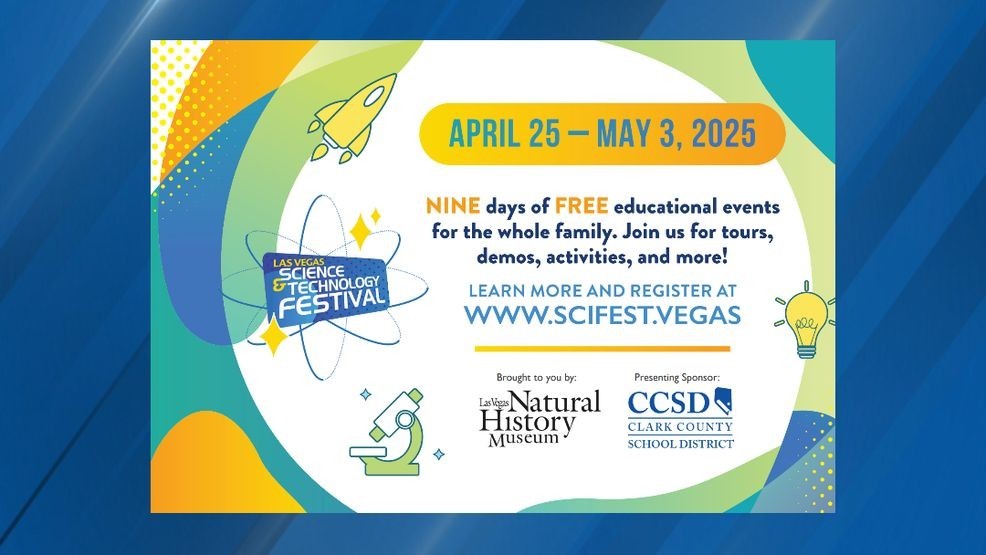
Get ready for an electrifying celebration of science and innovation! The Las Vegas Science & Technology Festival is back for its 14th spectacular year, promising an extraordinary nine-day journey into the world of STEM that will inspire and educate visitors of all ages. This year's festival is set to deliver an incredible lineup of free educational events and hands-on interactive activities designed to spark curiosity and ignite passion for science, technology, engineering, and mathematics. From cutting-edge demonstrations to immersive workshops, attendees will have the opportunity to explore the fascinating realms of scientific discovery and technological advancement. Whether you're a budding young scientist, a curious student, or an adult with a passion for learning, the Las Vegas Science & Technology Festival offers something extraordinary for everyone. Prepare to be amazed, challenged, and inspired by the incredible world of STEM! MORE...
Frozen Secrets: How Life Defies Impossible Odds Beneath Antarctica's Massive Ice Sheets
Science
2025-04-13 10:02:42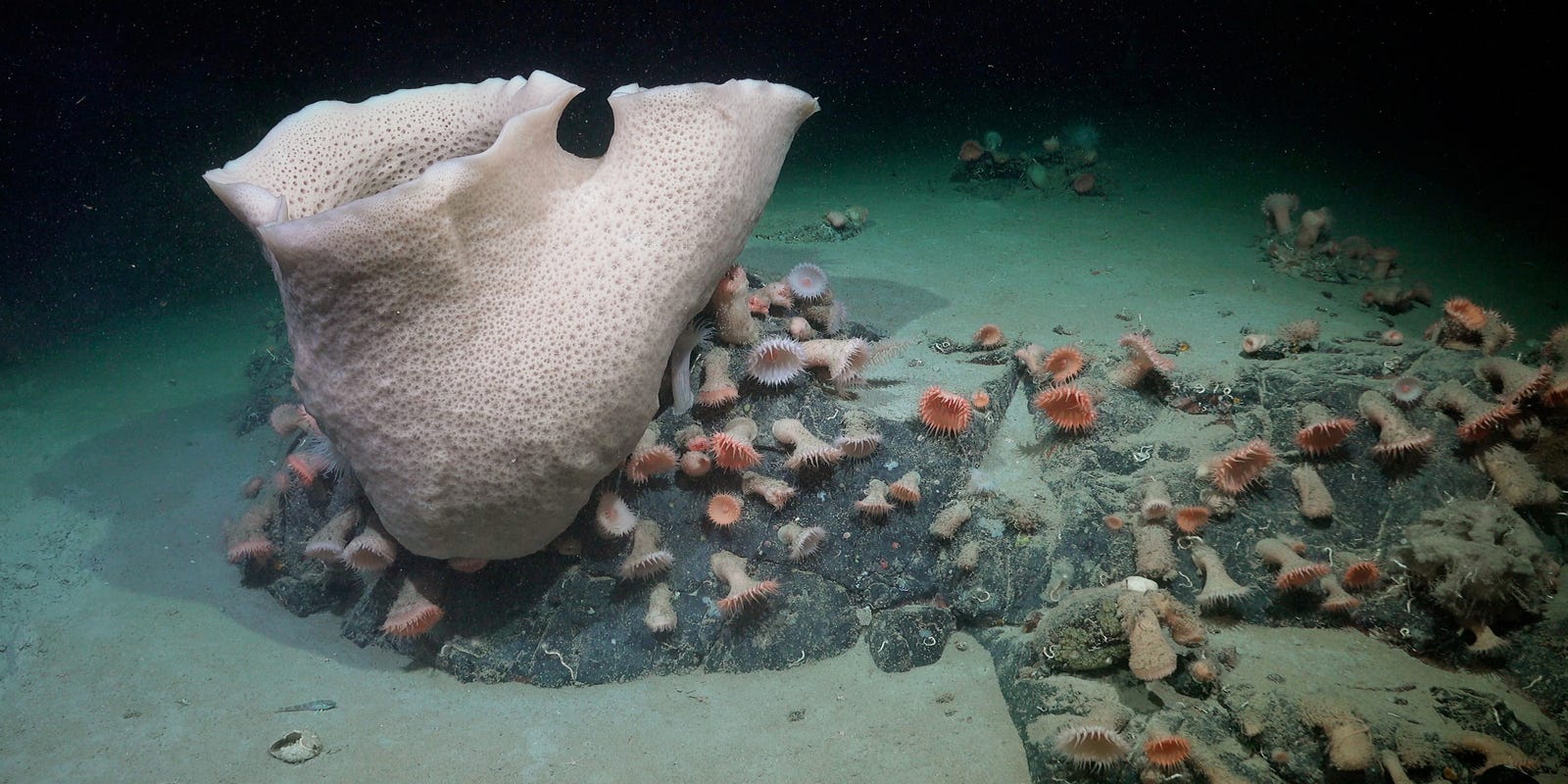
In a remarkable discovery that challenges our understanding of life's resilience, scientists have uncovered an extraordinary ecosystem hidden in one of the most unlikely places on Earth. Beneath the remnants of a vanishing glacier, researchers found a vibrant and complex biological community that defies expectations. The ecosystem, nestled in what was once the shadowy underbelly of a glacier, represents a stunning testament to nature's adaptability. Where one might expect only darkness and desolation, life has not just survived, but thrived. Researchers describe the discovery as "a beautiful, thriving ecosystem" that emerged in an environment previously thought to be inhospitable. This groundbreaking finding offers unprecedented insights into how living organisms can establish and maintain complex networks in extreme and isolated conditions. The discovery suggests that life can flourish in environments that were once considered too harsh or challenging for biological systems. The intricate ecosystem discovered beneath the glacier's former shadow provides scientists with a fascinating window into the remarkable adaptability of life on our planet. It challenges previous assumptions about the limits of biological survival and opens up new avenues for understanding how organisms can create and sustain complex communities in seemingly impossible circumstances. As glaciers continue to recede due to climate change, such discoveries become increasingly important, offering valuable scientific knowledge about ecological adaptation and resilience in a rapidly changing world. MORE...
- 1
- 2
- 3
- 4
- 5
- 6
- 7
- 8
- 9
- 10
- 11
- 12
- 13
- 14
- 15
- 16
- 17
- 18
- 19
- 20
- 21
- 22
- 23
- 24
- 25
- 26
- 27
- 28
- 29
- 30
- 31
- 32
- 33
- 34
- 35
- 36
- 37
- 38
- 39
- 40
- 41
- 42
- 43
- 44
- 45
- 46
- 47
- 48
- 49
- 50
- 51
- 52
- 53
- 54
- 55
- 56
- 57
- 58
- 59
- 60
- 61
- 62
- 63
- 64
- 65
- 66
- 67
- 68
- 69
- 70
- 71
- 72
- 73
- 74
- 75
- 76
- 77
- 78
- 79
- 80
- 81
- 82
- 83
- 84
- 85
- 86
- 87
- 88
- 89
- 90
- 91
- 92
- 93
- 94
- 95
- 96
- 97
- 98
- 99
- 100
- 101
- 102
- 103
- 104
- 105
- 106
- 107
- 108
- 109
- 110
- 111
- 112
- 113
- 114
- 115
- 116
- 117
- 118
- 119
- 120
- 121
- 122
- 123
- 124
- 125
- 126
- 127
- 128
- 129
- 130
- 131
- 132
- 133
- 134
- 135
- 136
- 137
- 138
- 139
- 140
- 141
- 142
- 143
- 144
- 145
- 146
- 147
- 148
- 149
- 150
- 151
- 152
- 153
- 154
- 155
- 156
- 157
- 158
- 159
- 160
- 161
- 162
- 163
- 164
- 165
- 166
- 167
- 168
- 169
- 170
- 171
- 172
- 173
- 174
- 175
- 176
- 177
- 178
- 179
- 180
- 181
- 182
- 183
- 184
- 185
- 186
- 187
- 188
- 189
- 190
- 191
- 192
- 193
- 194
- 195
- 196
- 197
- 198
- 199
- 200
- 201
- 202
- 203
- 204
- 205
- 206
- 207
- 208
- 209
- 210
- 211
- 212
- 213
- 214
- 215
- 216
- 217
- 218
- 219
- 220
- 221
- 222
- 223
- 224
- 225
- 226
- 227
- 228
- 229
- 230
- 231
- 232
- 233
- 234
- 235
- 236
- 237
- 238
- 239
- 240
- 241
- 242
- 243
- 244
- 245
- 246
- 247
- 248
- 249
- 250
- 251
- 252
- 253
- 254
- 255
- 256
- 257
- 258
- 259
- 260
- 261
- 262
- 263
- 264
- 265
- 266
- 267






